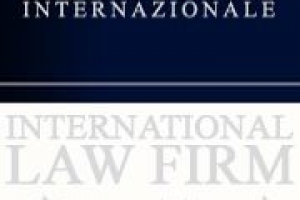Lawyers in Italy: information on Foreign Law
European Convention on Information on foreign law. Its application in Italy

The European Convention on Information on Foreign Law of June 7, 1968, entered into force in Italy on July 11, 1972.
According to this Convention, when doubts about foreign law arise into a legal proceedings, the States Parties shall supply information related to their law and procedure in civil and commercial fields as well as on their judicial system.
In order to carry out the provisions of the Convention, each Contracting Party shall set up or appoint a single body, as the "receiving agency" to receive requests for the information from another Contracting Party, or to take action on these requests. The receiving agency may be either a ministerial department or other State body.
Each Contracting Party may set up or appoint one or more bodies, as "transmitting agency", to receive requests for information from its judicial authorities and to transmit them to the competent foreign receiving agency. The receiving agency may be appointed as a transmitting agency.
A request for information shall always emanate from a judicial authority, even when it has not been drawn up by that authority. The request may be made only where proceedings have actually been instituted.
A request for information shall state the judicial authority from which it emanates as well as the nature of the case. It shall specify as exactly as possible the questions on which information concerning the law of the requested State is desired, and where there is more than one legal system in the requested State, the system of the law on which information is requested.
The object of the reply shall be to give information in an objective and impartial manner on the law of the requested State to the judicial authority from which the request emanated. The reply shall contain, as appropriate, relevant legal texts and relevant judicial decisions. It shall be accompanied, to the extent deemed necessary for the proper information of the requesting authority, by any additional documents, such as extracts from doctrinal works. It may also be accompanied by explanatory commentaries.
The information given in the reply shall not bind the judicial authority from which the request emanated.
By Mr. Luca Santaniello
Lawyer at Santaniello & Partners
Please, see also:
Taking of Evidence abroad in civil or commercial matters: the Hague Convention of 18 March 1970
The European order for payment
For more informations, don't hesitate to contact English speaking lawyers in Italy
The use of this content is permitted only by indicating source (link) and author

 Offices
Offices


